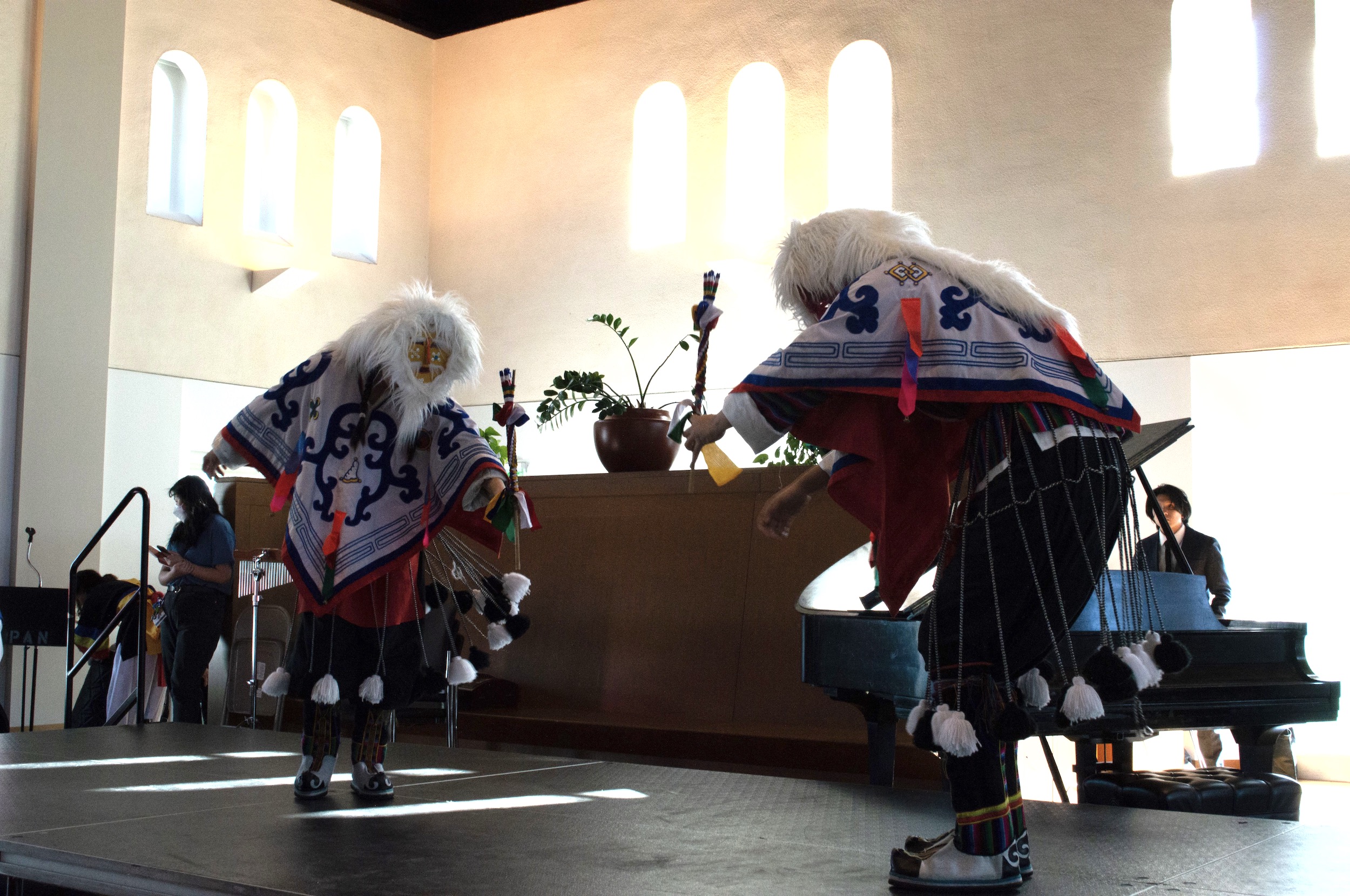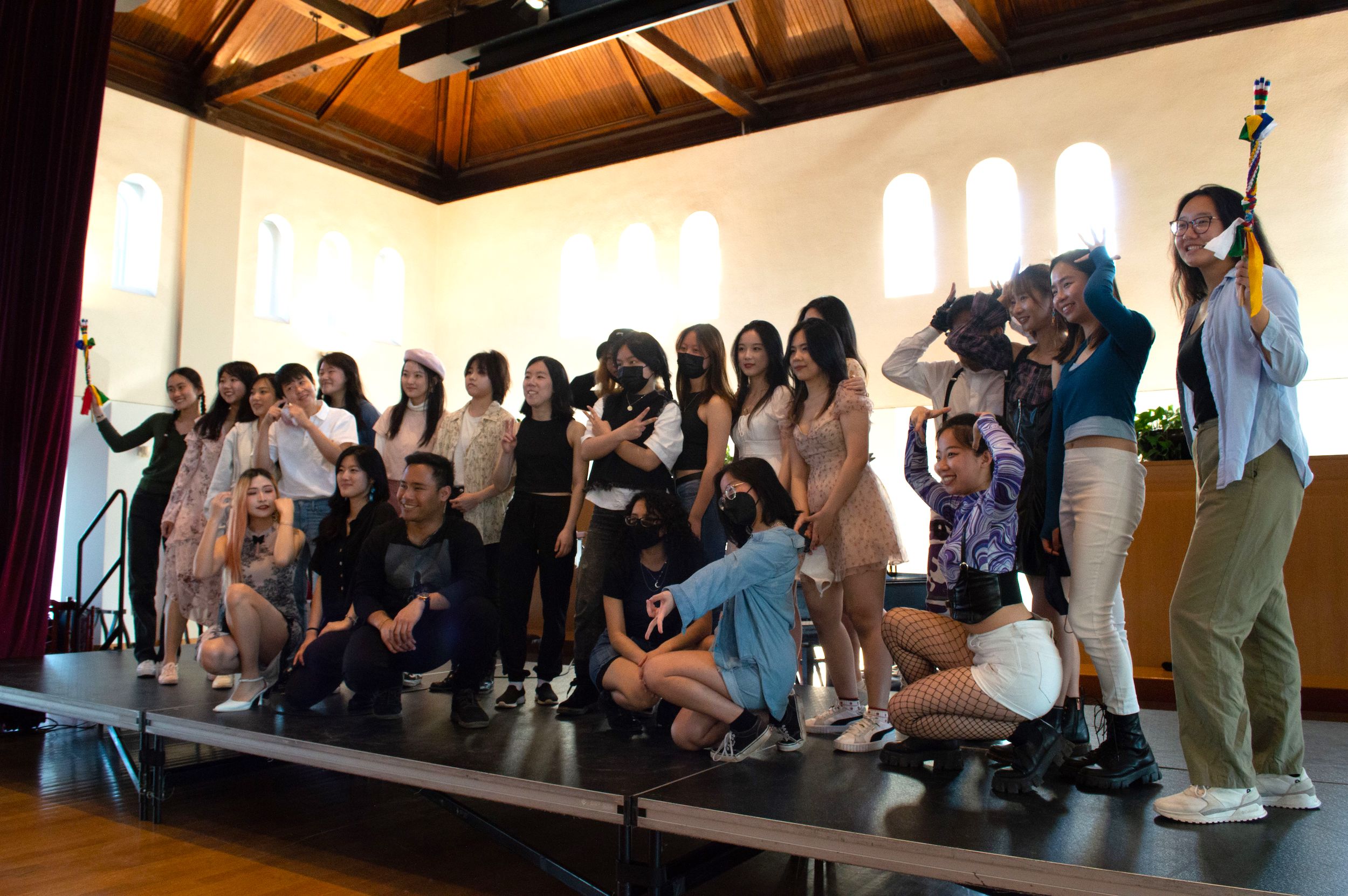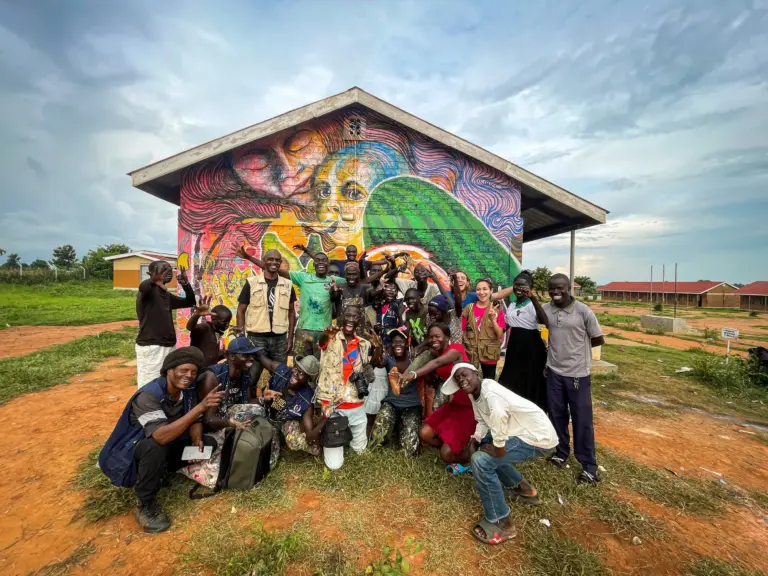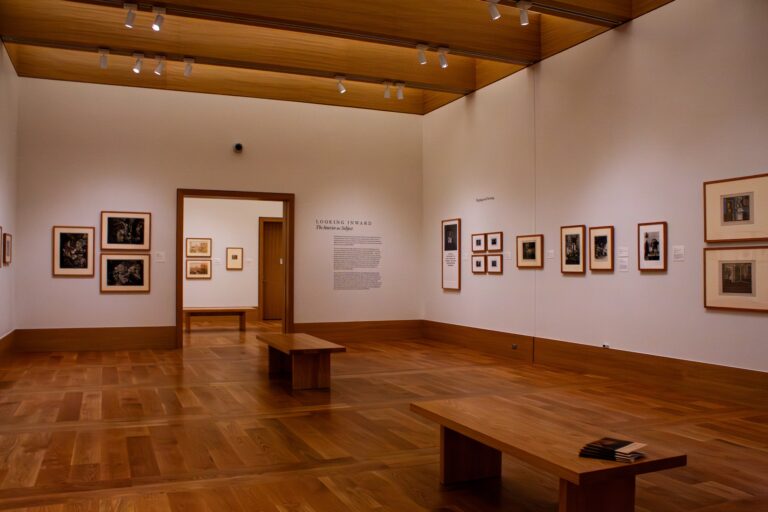Return of Mabuhay Showcase Highlights Pan-Asian Culture

Mabuhay, a student-run showcase of pan-Asian culture, filled Beckham Hall with song and dance on Friday, April 15. Drawing its name from a Tagalog greeting meaning “long life,” Mabuhay was a part of the ongoing celebration of Asian American and Pacific Islander Heritage Month at Wesleyan and coincided with the second day of this year’s WesFest, which allows prospective students to experience life on campus. Due to the COVID-19 pandemic, the show marked the first time Mabuhay has been held since 2019.
Open to current students, along with admitted students and family members, Mabuhay is typically held annually and sees many of the University’s Asian- and Asian American-related organizations collaborate to put on a variety of cultural performances, particularly music and dance. The Mabuhay Committee, which is made up this year of Hang Yang ’22 and Padra Yang ’22, coordinates performances from numerous organizations, classes, and individuals. The show is usually produced during WesFest, allowing it to both celebrate the campus community and showcase the University’s diversity to prospective students.
While Mabuhay was put on hiatus due to the pandemic, the showcase has been far from dormant in the past few years. Brian Hyunwoo Kim ’22, who was one of the MCs for Mabuhay alongside Ben Filio ’22, spoke about how students have long been discussing its return.
“For the past few years, I’ve been on the executive board of the Korean Student Association (KSA) and we would always be in talks about trying to make Mabuhay happen, especially during the COVID years, but it didn’t really work out,” Brian Kim said. “Last year, there [were] talks about doing something virtual or maybe having a small performance, but that didn’t seem viable.”
Padra Yang explained that the changes in COVID-19 restrictions this year led students to decide that it would be possible for the showcase to return.
“This year, since everything is kind of back to normal again, we decided, ‘Why not have a showcase again?’” Padra Yang said.
Brian Kim also noted that in past years, KSA served as a liaison between the Mabuhay committee and various performers and groups representing Korean culture. It was one of these groups that opened Mabuhay: students from Adjunct Assistant Professor of East Asian Studies Jin Hi Kim’s “Advanced Korean Drumming and Creative Music” class. Following opening remarks by Brian Kim and Filio, the drummers took to the stage for a rousing, rhythmic performance.
The next performers were Tenzin Jamdol ’25 and Tenzin Yengkey ’25. Wearing white-bearded masks, Jamdol and Yengkey performed Tashi Shoelpa, a dance from Tibetan opera that is believed to bring good fortune, with a spare backing track of vocals and percussion.
Showcasing a variety of less represented cultures at the University, such as Tibetan culture, is an important part of Mabuhay.
“We want to make sure that even if your Asian identity is a small population on campus, you have a place to show your culture and show your talent,” Hang Yang said.
The next performer was Philippe Gene Bungabong ’22. Bungabong gave a solo vocal performance of “Bukas Na Lang Kita Mamahalin,” a 2000 song by Filipino singer Lani Misalucha. The song, an emotional ballad about forbidden love, allowed Bungabong to showcase his powerful singing voice, with vocal runs that had the crowd cheering.
Following Bungabong was Zheqin Li MA ’23. Another solo singer, Li performed “You Are My Air,” a breezy, upbeat pop-rock song released in 2018 by the Taiwanese band Won Fu. The performance made for an upbeat ending to the first act, as Li led the crowd in waving back and forth to the chorus.
After Li’s performance was an intermission, during which the attendees were encouraged to enjoy Mabuhay’s food and drink offerings. The stands, run by the Indonesian Student Association and Taiwanese Student Association, sold a range of Asian snacks and beverages.
The second act of Mabuhay brought the energy back to the room with a performance from Visiting Instructor in Music Fumi Takanadate’s Taiko drumming class. The style of the performance was specifically Miyake Taiko, named for the Japanese island of Miyake-jima and originating in the village of Kamitsuki.
Following the opening to the show’s second act, Mabuhay turned once again to the modern era as K-pop Dance Crew (KDC) presented dance performances to three K-pop songs. The first, “Don’t Know What to Do,” a 2019 song by Blackpink, was a “teachers dance” performed by Iris Chen ’22, Cara Chen ’23, Queenie Xie ’23, and Zoey Chen ’23, who are all group leaders in KDC. The other two performances—“Crazy,” a 2015 song by 4Minute, and “Loco,” a 2021 song by Itzy—saw KDC teachers Filio, Nallely Salinas ’24, Stella Zhang ’24, Wing Yi Leung ’24, and KDC president Jasmyn Choi ’22 perform alongside other KDC members.
“A really important part about Mabuhay is that it shows that culture is always changing,” Choi said. “We showcase elements of traditional culture and then can see how it’s transformed when it [becomes] super modern, and K-pop is taking over the world. But it’s still all Asian culture.”
KDC has been a long-time participant in Mabuhay, and Choi explained that the group’s performances offer a valuable counterpoint to some of the show’s more traditional programming.
“It’s also important for students to see [KDC] and feel like that they have an avenue to participate, even if they don’t know as much about traditional culture,” Choi said.
The three songs performed at Mabuhay will be included along with multiple other performances in KDC’s spring showcase on Sunday, May 1.
The next performers were the Chinese Music Ensemble, composed of director Chia-Yu Joy Lu and members Tong Kong ’20, Sonia Guan ’24, Flora Gu ’23 and Terry Yuan ’23. The ensemble performed “Rolling the Beaded Curtain,” a 2014 song by Chinese singer-songwriter Henry Huo. An emotional track about longing, the song incorporates traditional Chinese elements and won Huo first place on the 2014 reality television show “Sing My Song.”
Closing out Mabuhay were Jin Huang ’22 and Jiner Zheng ’22, who performed “Recollection,” a mellow 2017 work by Chinese pianist and composer Zhen Chen. Huang and Zheng performed the work as a duet between the piano and the pipa, a Chinese plucked string instrument. On that calming note, this year’s Mabuhay performance came to a close.
For those involved, the Mabuhay show was the culmination of three years of anticipation and a moment rich with meaning.
“It was really beautiful to see everyone there for a show that’s been gone for so many years, and to celebrate Asian American and Pacific Islander Month,” Padra Yang said.
Brian Kim echoed Padra Yang’s sentiments, highlighting the multitude of students involved in putting the showcase together.
“Mabuhay is pretty special,” Brian Kim said. “It’s not just one student group, it’s a bunch of organizations and individual students who fall under Asian identity who all gather up to showcase that this community does exist at Wesleyan. It can be overlooked, but it is pretty vibrant if you look closely.”
Choi reflected on KDC’s place in the showcase, noting that many of its members are not of Korean heritage but still take part in celebrating this aspect of Korean culture.
“As a Korean American myself, I love to see people interested in the culture and the dance,” Choi said.
For Hang Yang, witnessing Mabuhay when she was a prospective student was key in her decision to attend Wesleyan.

“I was kind of worried to find a college where I could feel comfortable expressing my Asian American identity,” Hang Yang said. “Seeing [Mabuhay] during WestFest, I was able to see how Wesleyan respects the Asian community on campus, the school gets involved in helping organize such a show that involves so many different cultures. I thought that was really meaningful, seeing that there’s a space for everyone.”
Brian Kim expressed a similar idea, sharing that working on Mabuhay has represented a fitting full-circle moment for his Wesleyan experience.
“It was one of the first events that I had seen as a prospective student at WesFest, so being an MC in my senior year really closed the gap for me,” Brian Kim said. “[Mabuhay] was how I realized when I first came here that there’s these different Asian groups, there’s a vibrant Asian community, even though the Asian population isn’t a majority in this school.”
The seniors involved in Mabuhay also expressed wishes for the show to continue into the future.
“We want to keep this a tradition,” Hang Yang said. “Even though our show this year was a smaller one, because we had less time, we really encourage different students and student groups on campus that identify as Asian and Asian American to get involved and keep this a tradition at Wesleyan even after we leave.”
Oscar Kim Bauman can be reached at obauman@wesleyan.edu.








Leave a Reply